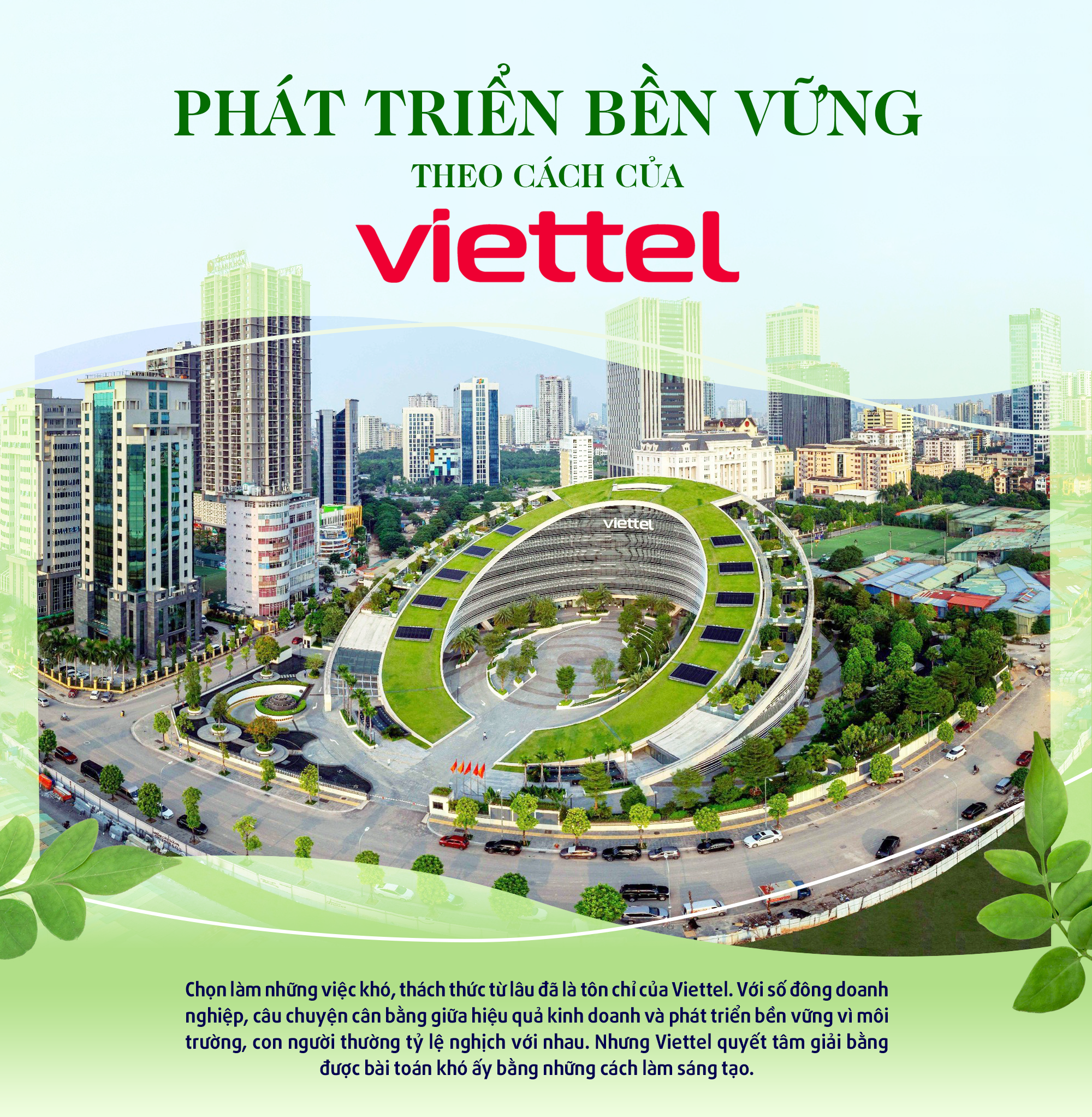
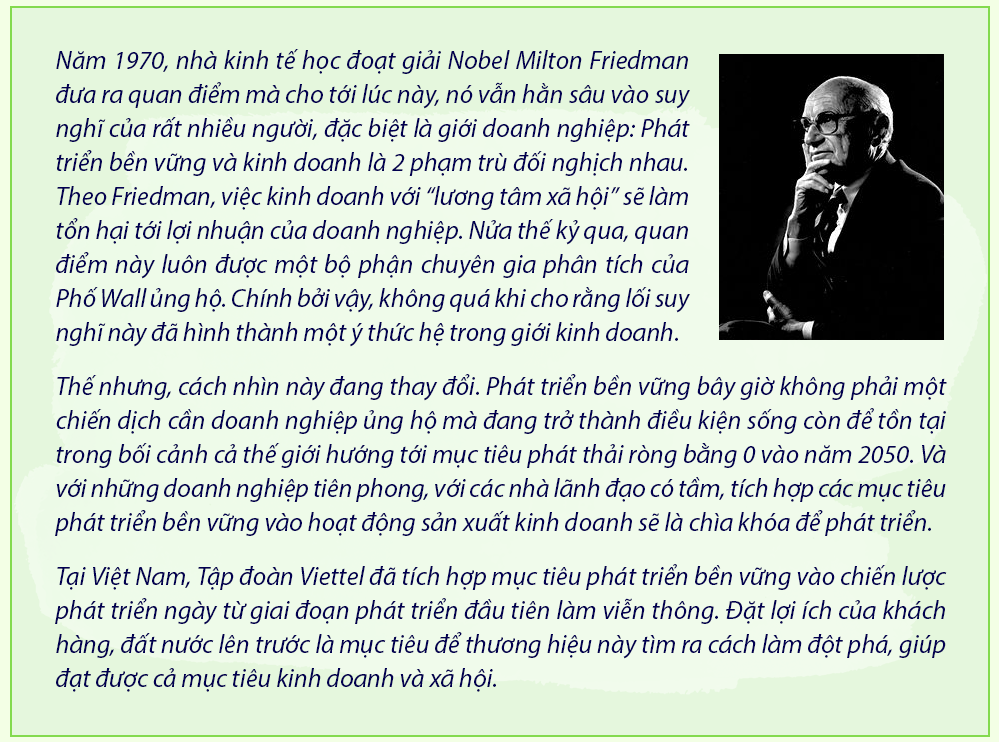

In its business philosophy,
Viettel has clearly stated: The foundation for a developing enterprise is society. Viettel commits to reinvesting in society by linking production and business activities with social activities. Before Viettel made mobile phones, the whole country only had about 2,000 broadcasting stations. In the 1990s, "brick" phones cost up to 4-5 million VND. Mobile phones were a luxury service with a connection fee of 1.5 million VND, a maintenance fee of 300,000 VND/month, and a postpaid fee of 8,000 VND/minute. That's why, until now, people still remember the example of calling for one minute of mobile phone calls that cost 2 bowls of pho in the city (at that time, a bowl of pho cost only about 4,000 VND) and mobile phones were only for the rich. And for that reason, although mobile waves appeared in Vietnam since 1993, mobile services remained beyond the affordability of the majority for the following decade. It was not until October 2004, when Viettel officially entered the mobile service business, that everything changed. The dream of Viettel people at that time was very short: "Every Vietnamese person has a mobile phone". Many people considered this impossible because even city dwellers found using mobile phones too expensive, and people in rural areas or less developed areas did not dare to dream of it.
But what Viettel did later proved the opposite. The fact that a network operator was born with the initial goal of universalizing mobile phones for everyone and prioritizing rural areas, mostly poor people, is a typical example of "business with social conscience". In terms of network infrastructure, while previous competitors focused mainly on urban areas, Viettel - a newcomer - chose to cover every corner, island border. To achieve that goal, Viettel people had many breakthrough initiatives such as designing the network in a lattice shape, standardizing the installation of BTS stations by region. This helped the planning and placement of thousands of BTS stations to be completed in just 1 day instead of many years. And the installation of the stations was also completed excellently by employees who did not have much experience, but were full of enthusiasm and dedication. The "new soldier" has rapidly built a network of 5,000 stations covering the whole country, successfully implementing the strategy of "using the countryside to surround the city". After completing the infrastructure, Viettel people understood that in order to popularize mobile phones for all people, the next important thing is that the cost must be reasonable, helping customers not feel that "raising" a mobile phone is a burden.
Cheap packages, attractive promotions while maintaining good call quality, and coverage everywhere have created a turning point in mobile for people who do not have abundant
economic conditions. In the eyes of Dr. Mai Liem Truc, former Permanent Deputy Minister of the Ministry of Posts and Telecommunications, Viettel has "changed the country" thanks to the miracle of mobile universalization. "Every day, sitting at home, opening the door and looking out from here, seeing vegetable vendors, motorbike taxi drivers, and scrap dealers sometimes sitting under the banyan tree across the street, occasionally taking out their phones to say hello, hello, I am very moved", Dr. Mai Liem Truc confided. In addition to the creative, fast-paced approach, the core of Viettel's mobile universalization journey's success in Vietnam is the belief that everyone, regardless of wealth or generation, needs to have equal access to technology. And that belief has brought "sweet fruit". Commenting on Viettel's strategy to popularize mobile information services, former President Truong Tan Sang, who held the position of Head of the Central Economic Commission at the time Viettel launched the service, recalled: "Everyone benefited. After participating in the telecommunications business, Viettel was the fastest growing and most successful company, not only reducing the cost of telecommunications services, but also contributing to promoting the development of the country's economy."
The proudest thing that Viettel has achieved in the past 35 years is not becoming a key economic group, always contributing the largest budget to the country; but persistently and continuously realizing the vision of "Innovation for people", with the philosophy: when technology moves forward, no one is left behind. There, technology comes from empathy, desire and aspiration to bring a better life to people. When the Autonomous System - Viettel's automated network operating system was introduced at the Mobile
World Congress (MWC) 2024, many experts focused on the benefits of safety, quick troubleshooting, cost and energy savings that it brings. However, Viettel's number 1 important goal when developing this system is the customer service experience.
With the previous network operation system, BTS stations needed 24/7 monitoring personnel to promptly handle arising situations or go to the site to maintain the system. Therefore, maintaining stations in remote areas was very difficult, and service quality was not high. Not to mention power problems, service interruptions in these areas were inevitable... For a network operator operating in 11 countries around the world, having to operate about 100,000 BTS stations every day, with many stations in remote areas, even in places without electricity, this was not a small problem. On such a large scale, to ensure the network has good quality and is optimized, it is necessary to automate and smarten the network. Similar to when it first started doing mobile, Viettel chose a path that no other network operator in the world had taken: developing its own network operation system. And when that network is put into operation, what it brings is not just improving service quality or customer experience.
With the Autonomous System, Viettel's BTS stations do not need people on duty to operate and maintain but still ensure high performance and no errors. This system also helps ensure that each customer's mobile calls and data are seamless and stable, from highland areas such as Yen Minh,
Ha Giang to island districts such as Truong Sa and many remote areas in foreign markets such as the Amazon rainforest in Peru. Previously, each time it was time for inspection, Viettel engineers had to spend nearly a day going through forests, rivers, and seas... to each remote station. With this system, they only need to sit in the control room and perform operations on the system for a few minutes. Viettel's network troubleshooting time has been reduced from 15-30 minutes to 1-2 minutes, and users hardly notice any interruption in service. In 2023 alone in Vietnam, Autonomous System automatically processed 370,000 warnings, achieving a success rate of over 90% with less than 20 engineers. Thanks to the automatic operation system, Viettel can increase the efficiency of 100,000 BTS stations, extending the Lithium battery life by 20% compared to normal (in areas without grid electricity). Compared to the old way of operation, Viettel estimates that this system helps reduce emissions of about 1 million tons of CO2 per year, equivalent to planting 17 million trees.
At the global level and in Vietnam, the technology market is undergoing rapid transformation with the rise of new technology trends and sustainable development trends, of which green transformation is prominent. Accordingly, the production and provision of products and services are gradually "greening". For many businesses, this is just a supplement, starting with less important tasks, then gradually spreading to core business activities, which are more difficult to change. In fact, many organizations still see green transformation as effective in the long term, but it will be costly and reduce business efficiency in the short term. In that context, as it did with the Telecommunications industry, Viettel chose the green orientation as a development strategy to "kill two birds with one stone": increasing efficiency, enhancing competitiveness and differentiation in both the short and long term; while minimizing costs.
Viettel's logistics sector is taking full advantage of this trend. When it comes to sustainable development, most people often think that businesses need to use environmentally friendly materials or change their means of operation and accept higher costs. However, Viettel's green logistics starts with technology that is not more expensive or more complicated. With "mobile post office" technology, each truck and each postman is connected to post offices thanks to a data sharing application. Intermediaries are minimized, helping to reduce 15% of the transportation distance and the number of transfer vehicles. Most recently, in early 2024, Viettel put into operation the first smart sorting technology complex in Vietnam, using AGV robots. The error rate of the complex is almost zero, shortening the entire delivery time from 8-10 hours, increasing output by 3.5 times. Thanks to automation, labor costs are estimated to be optimized by 60%. It is estimated that in 2023 alone, 2,313 tons of CO2 will be saved and not released into the environment thanks to a series of measures: Investing in electric vehicles to reduce emissions, optimizing the load of each trip, optimizing warehouse operations to limit energy consumption; using trains or ships to transport goods over long distances, consuming less fuel than trucks. "Mobile post offices" or smart sorting industrial complexes are all solutions that require a lot of investment in money and effort, and Viettel is the first company in Vietnam determined to implement. Immediately after that, Viettel set a goal of deploying logistics parks, smart border gates, supply chain systems, international railways... to realize the goal of successfully building a national logistics infrastructure. And consumers are the main beneficiaries. Logistics costs in Vietnam in general will continue to decrease and goods will reach customers faster.
In early April 2024, Viettel Group opened the first green data center (DC) in Vietnam in Hoa Lac, with a total power capacity of up to 30kW - the largest in Vietnam. This center is designed to handle large tasks in the field of AI and artificial intelligence. This is also the first DC in Vietnam to be built with green credit from HSBC Global Bank - which is only granted to projects that pass the strict credit management and approval process on sustainable finance. Not many companies in the same field have chosen to build a similar green DC. The reason is familiar, business efficiency and sustainable development are often inversely proportional. Green data centers require much larger investment capital than traditional DCs. Successfully applying and deploying new technologies is also a big challenge that businesses need to overcome, along with the question of how to maximize performance while reducing costs to provide customers with good services at reasonable prices. Viettel has gradually found a solution to that difficult problem. Thanks to the successful application of many new technologies, Viettel DC's PUE (the amount of electricity consumed by the entire DC divided by the amount of electricity consumed by the computing devices alone) only reaches 1.4 to 1.5, the lowest in Vietnam (the normal PUE level is 1.6-1.7). Simply put, each calculation performed at Viettel's green DC consumes less electricity than when performed at another DC.
In the planned plan, Viettel will open 3 new green DCs with a capacity of up to 240 MW - 8 times larger than the largest green DC in Vietnam at present. The further goal is to use 20-30% renewable energy to operate DCs in Vietnam when legal regulations allow it. "Viettel pays special attention to creating environmentally friendly solutions and products," affirmed Mr. Nguyen Dinh Chien, Deputy General Director of Viettel Group. Accordingly, the green digital infrastructure strategy not only creates a new chapter for Viettel but also for the DC industry in Vietnam. In the face of the trend that countries in particular are very aware of the importance of green development and the determination of
the Government in implementing the national strategy for developing the digital economy and digital society, the Viettel IDC smart data center demonstrates Viettel's vision on the journey of sustainable development. This is also a solid step forward for Viettel in affirming its mission of "pioneering in creating a digital society".
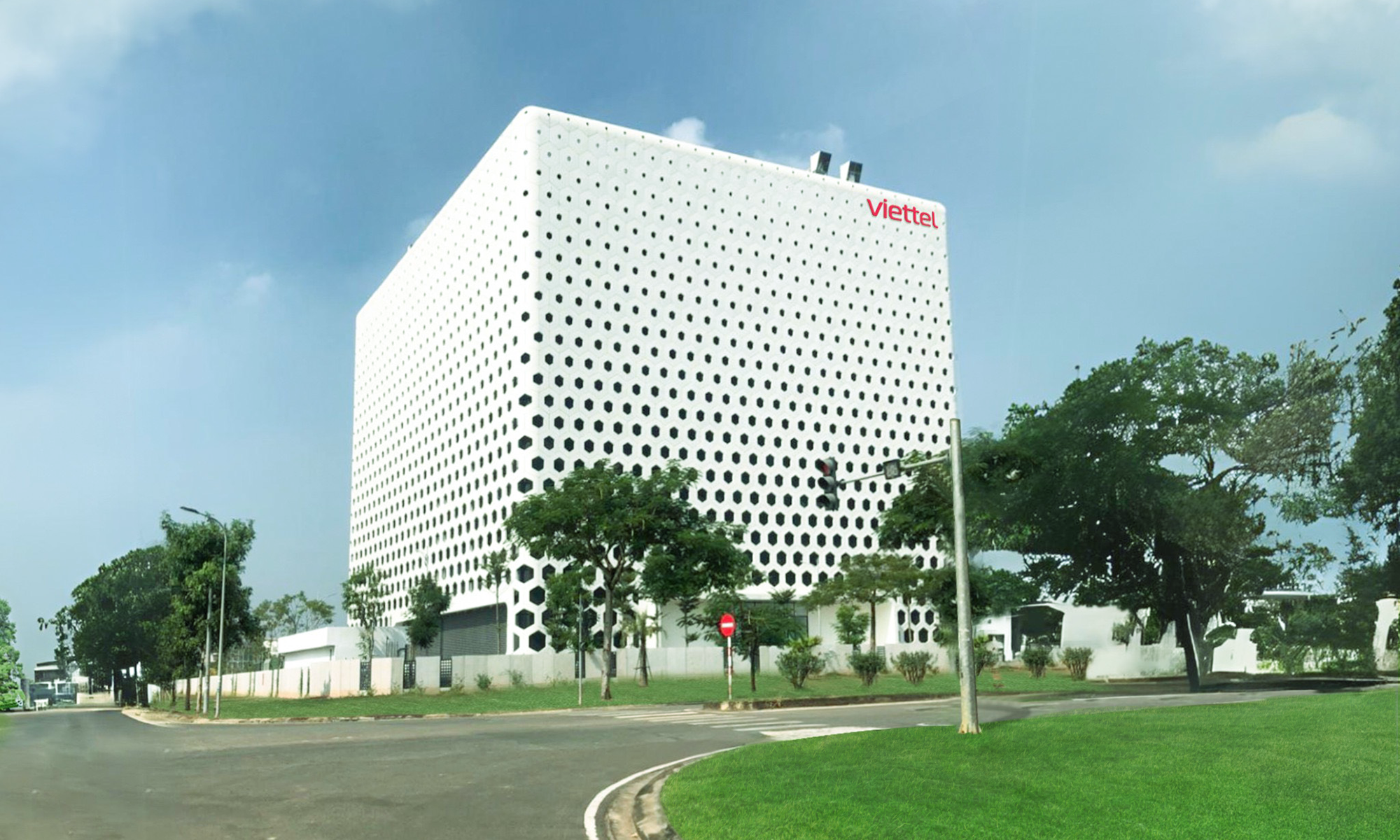
Source: https://nhipsongkinhte.toquoc.vn/phat-trien-ben-vung-theo-cach-cua-viettel-20240616200812544.htm


 In its business philosophy, Viettel has clearly stated: The foundation for a developing enterprise is society. Viettel commits to reinvesting in society by linking production and business activities with social activities. Before Viettel made mobile phones, the whole country only had about 2,000 broadcasting stations. In the 1990s, "brick" phones cost up to 4-5 million VND. Mobile phones were a luxury service with a connection fee of 1.5 million VND, a maintenance fee of 300,000 VND/month, and a postpaid fee of 8,000 VND/minute. That's why, until now, people still remember the example of calling for one minute of mobile phone calls that cost 2 bowls of pho in the city (at that time, a bowl of pho cost only about 4,000 VND) and mobile phones were only for the rich. And for that reason, although mobile waves appeared in Vietnam since 1993, mobile services remained beyond the affordability of the majority for the following decade. It was not until October 2004, when Viettel officially entered the mobile service business, that everything changed. The dream of Viettel people at that time was very short: "Every Vietnamese person has a mobile phone". Many people considered this impossible because even city dwellers found using mobile phones too expensive, and people in rural areas or less developed areas did not dare to dream of it.
In its business philosophy, Viettel has clearly stated: The foundation for a developing enterprise is society. Viettel commits to reinvesting in society by linking production and business activities with social activities. Before Viettel made mobile phones, the whole country only had about 2,000 broadcasting stations. In the 1990s, "brick" phones cost up to 4-5 million VND. Mobile phones were a luxury service with a connection fee of 1.5 million VND, a maintenance fee of 300,000 VND/month, and a postpaid fee of 8,000 VND/minute. That's why, until now, people still remember the example of calling for one minute of mobile phone calls that cost 2 bowls of pho in the city (at that time, a bowl of pho cost only about 4,000 VND) and mobile phones were only for the rich. And for that reason, although mobile waves appeared in Vietnam since 1993, mobile services remained beyond the affordability of the majority for the following decade. It was not until October 2004, when Viettel officially entered the mobile service business, that everything changed. The dream of Viettel people at that time was very short: "Every Vietnamese person has a mobile phone". Many people considered this impossible because even city dwellers found using mobile phones too expensive, and people in rural areas or less developed areas did not dare to dream of it. 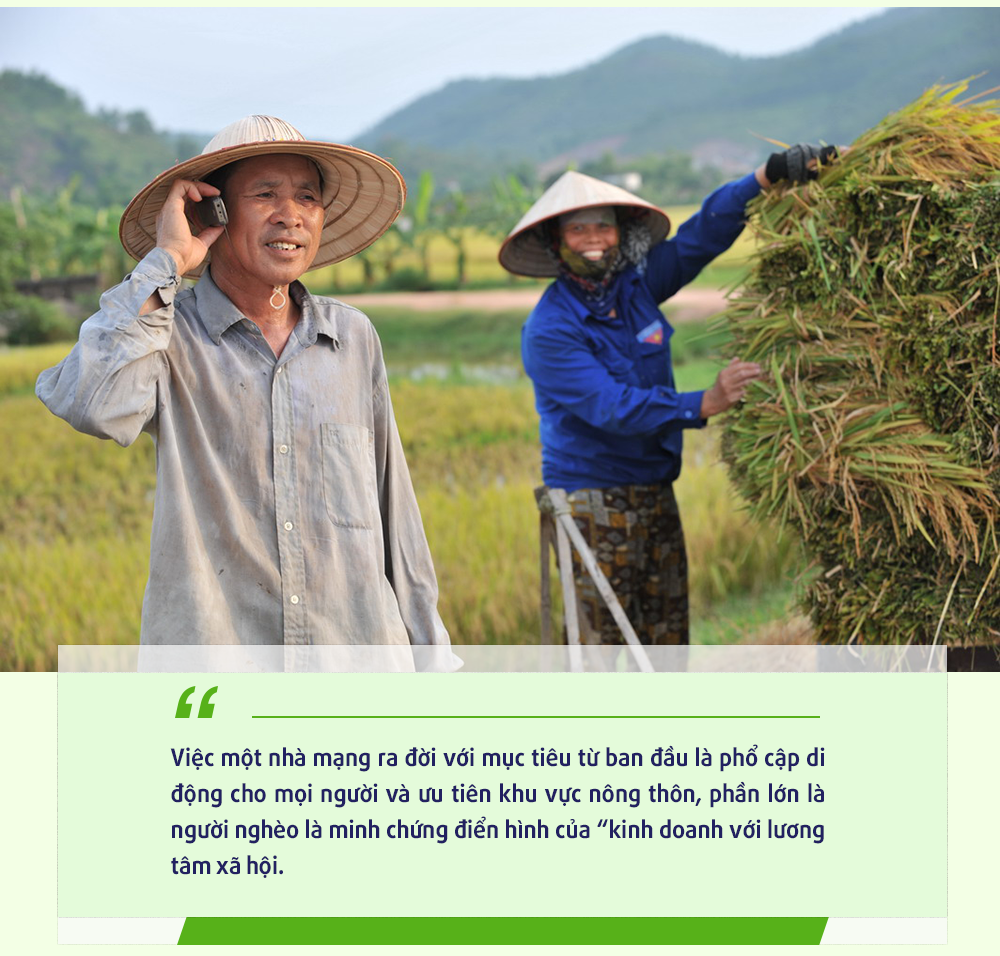
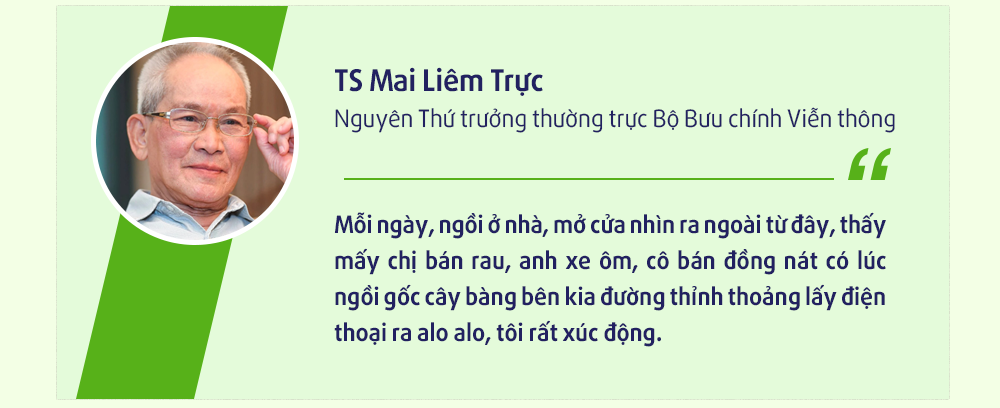
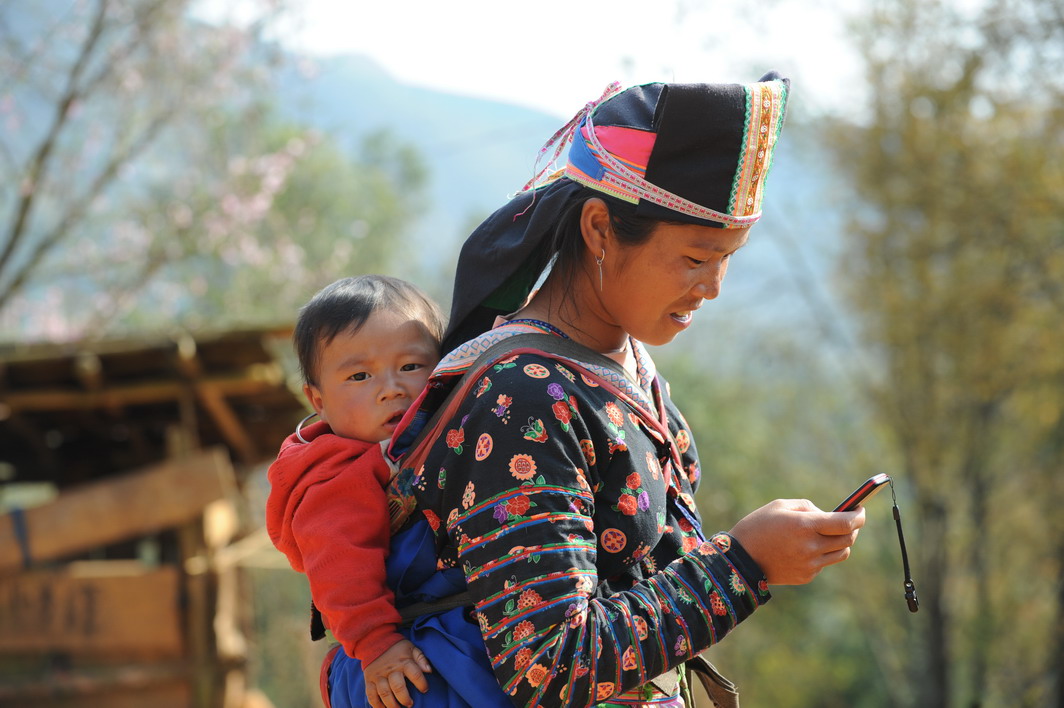
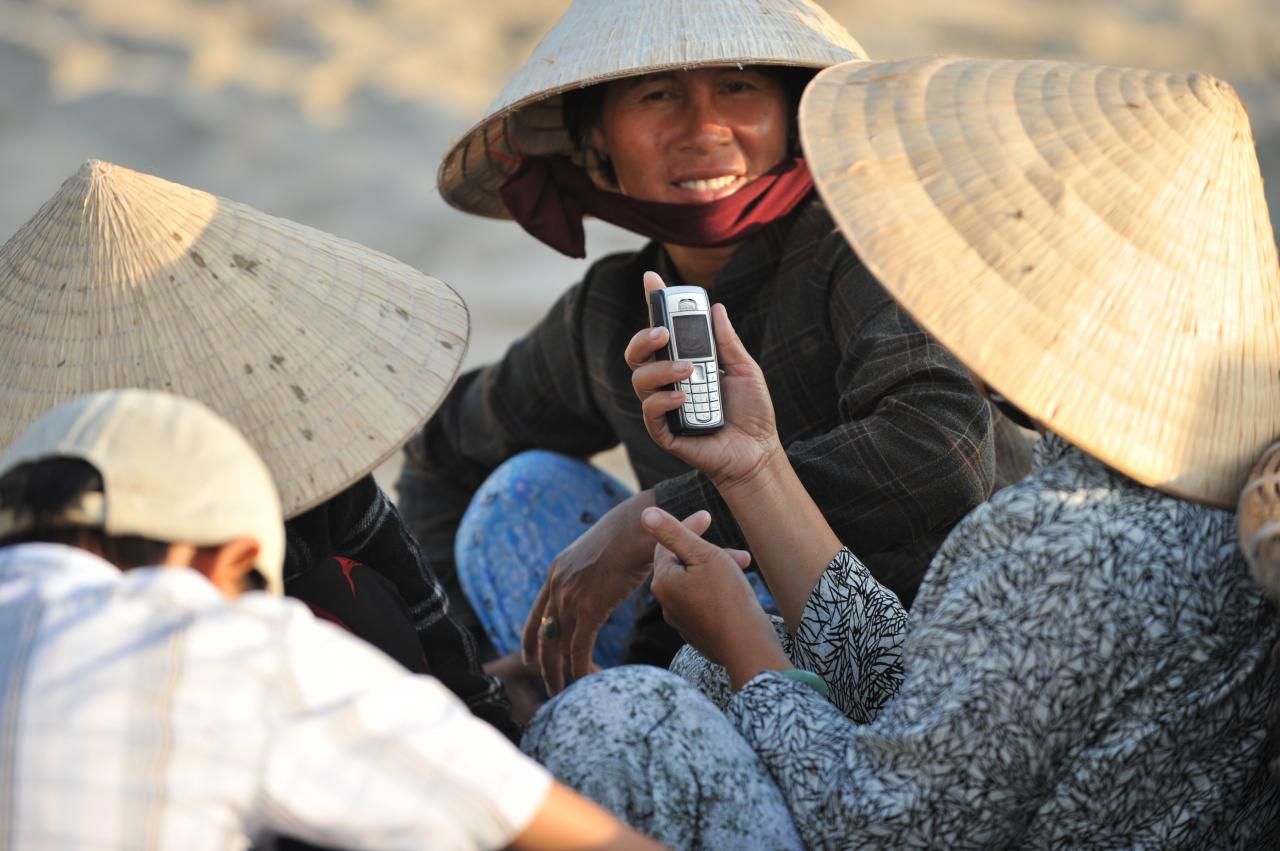

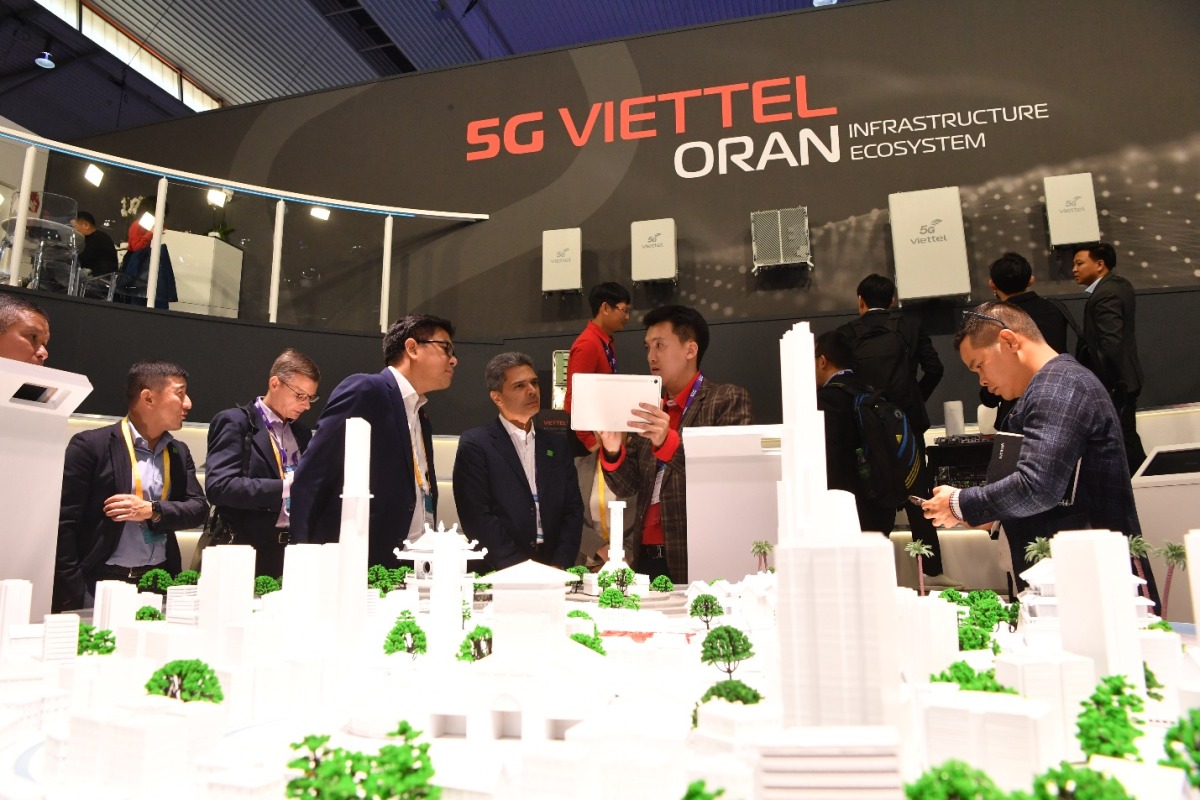



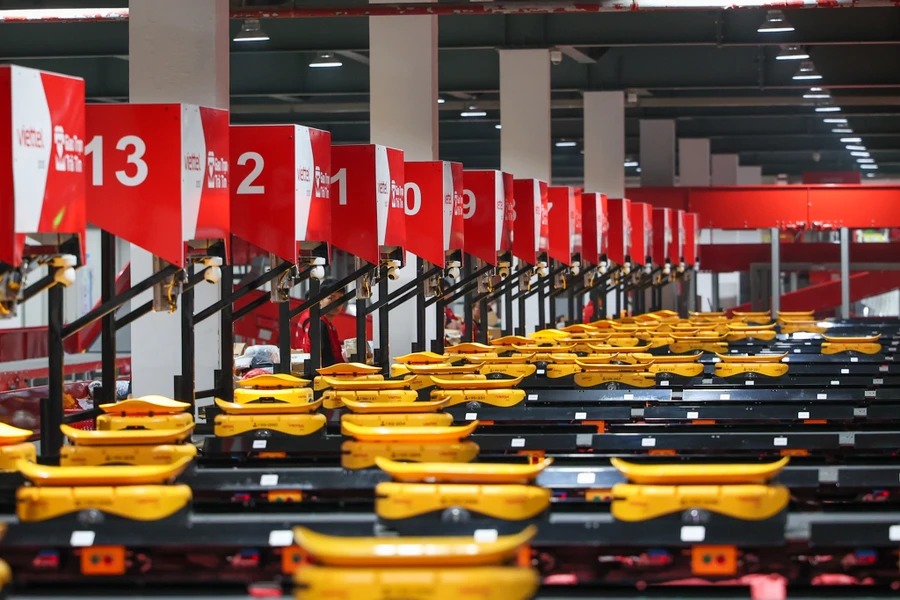
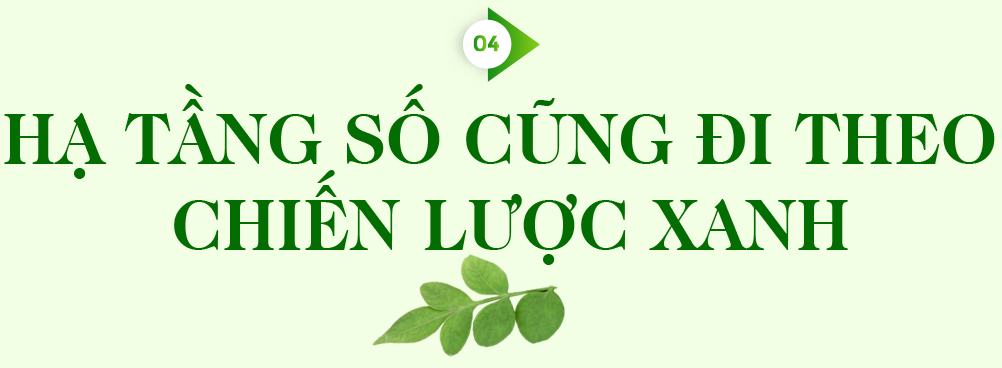
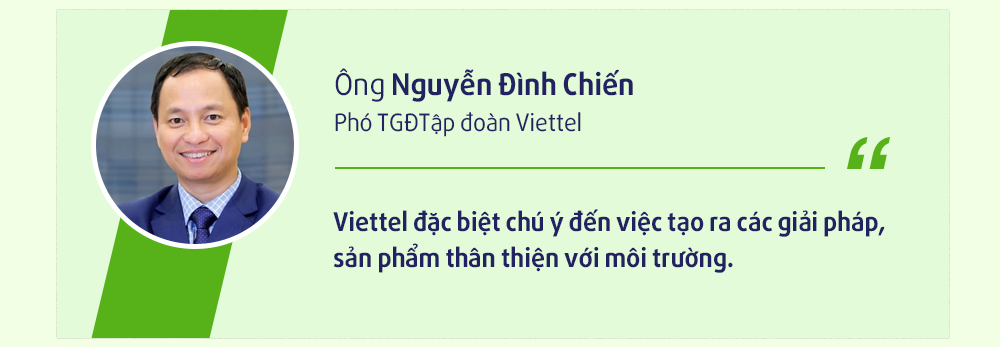








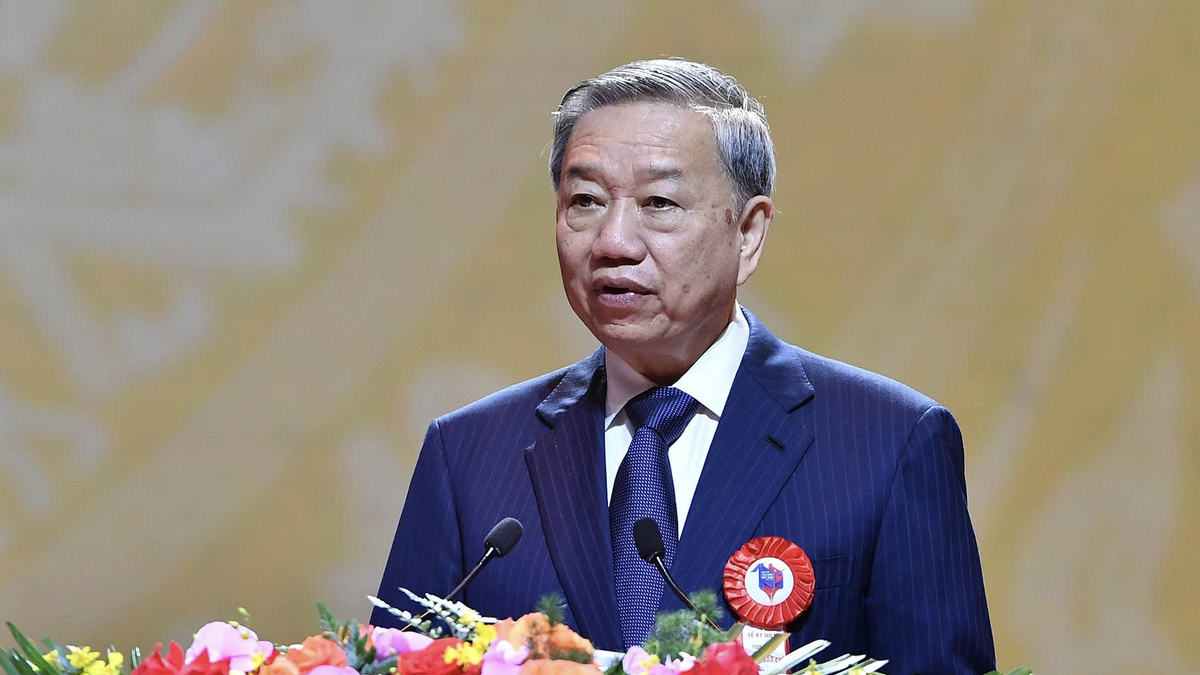
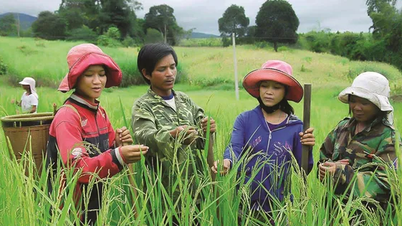



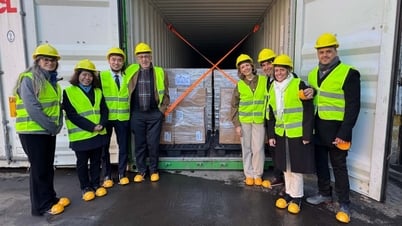

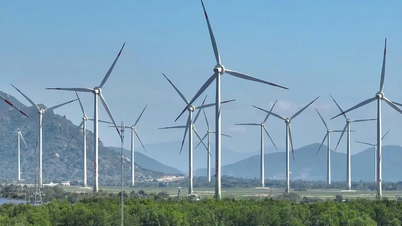

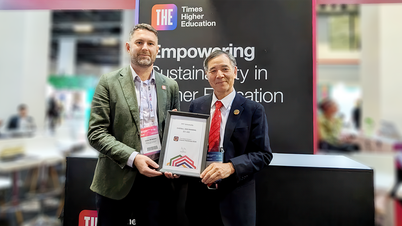

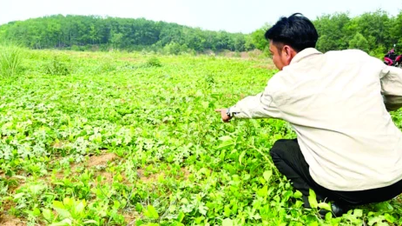

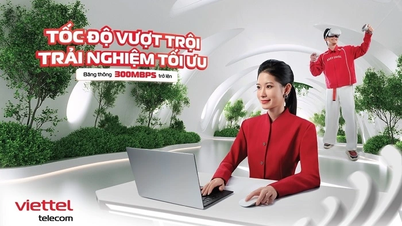
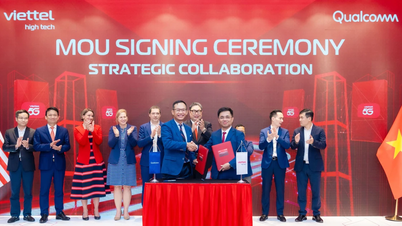

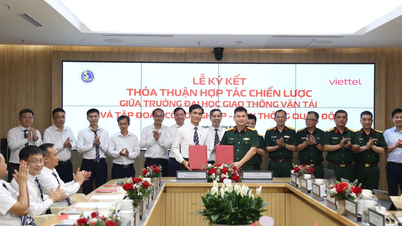

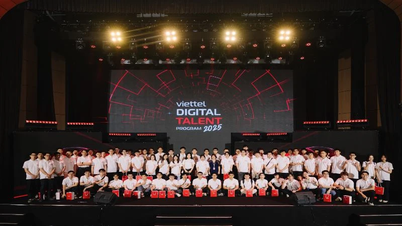

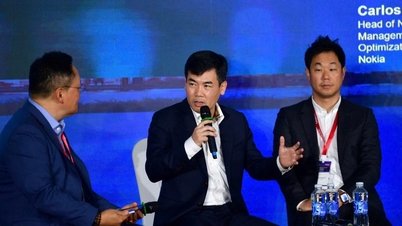









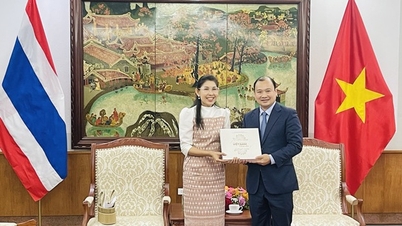
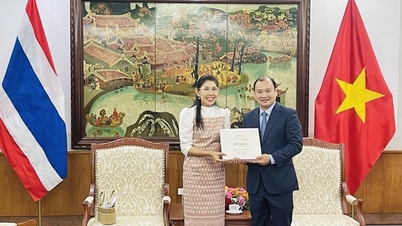

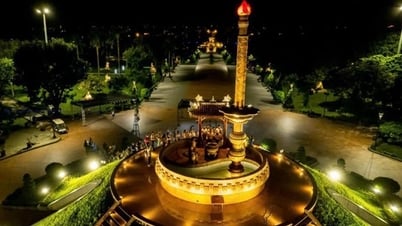
![[Photo] Central Propaganda and Mass Mobilization Department meets with exemplary journalists](https://vphoto.vietnam.vn/thumb/1200x675/vietnam/resource/IMAGE/2025/6/21/9509840458074c03a5831541450d39f8)



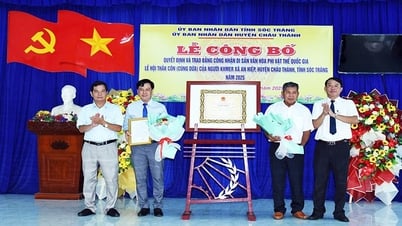


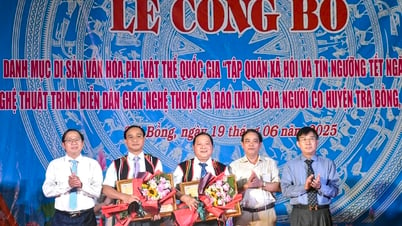




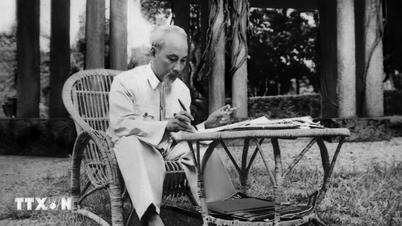

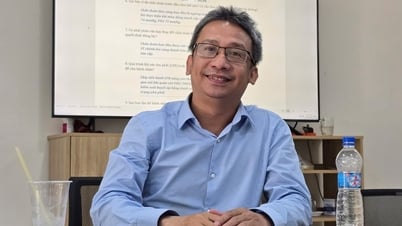


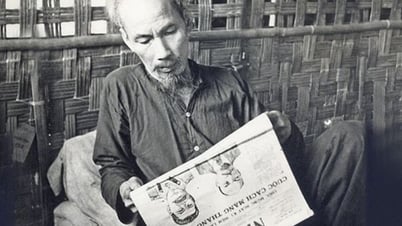





![[Maritime News] Wan Hai Lines invests $150 million to buy 48,000 containers](https://vphoto.vietnam.vn/thumb/402x226/vietnam/resource/IMAGE/2025/6/20/c945a62aff624b4bb5c25e67e9bcc1cb)


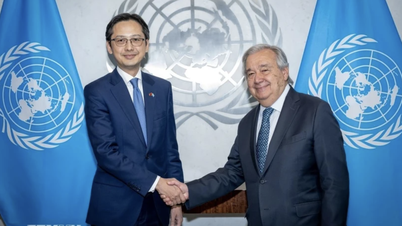
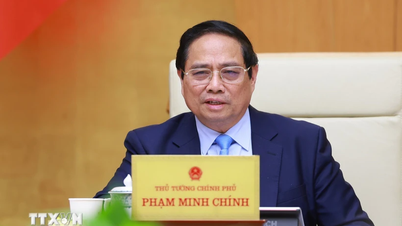





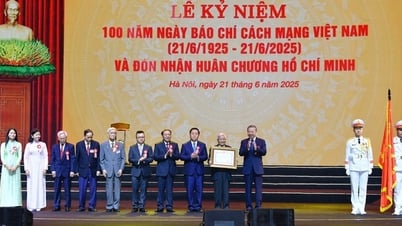
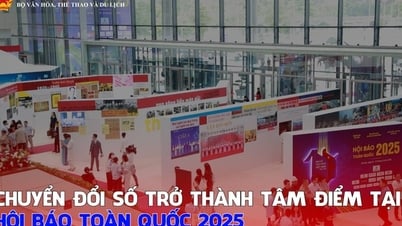
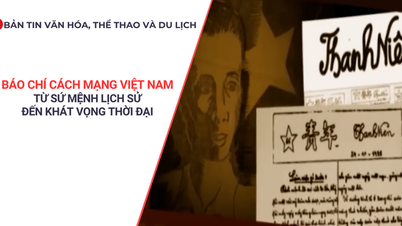
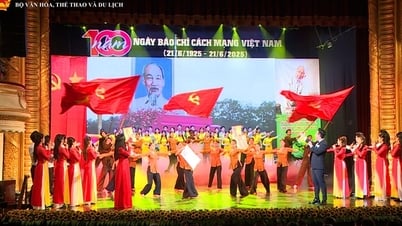
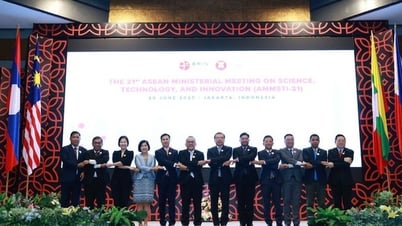

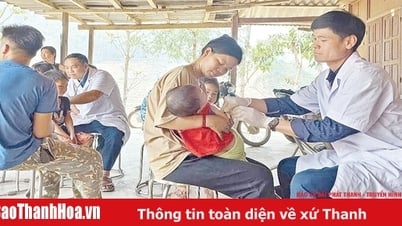

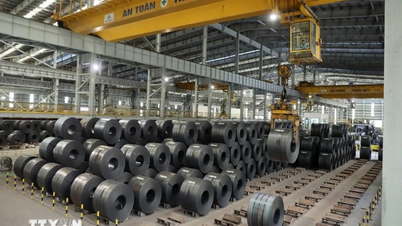
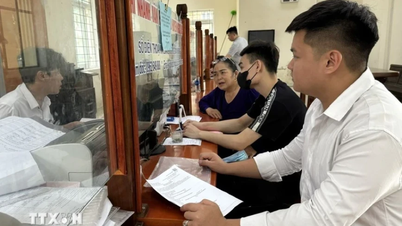
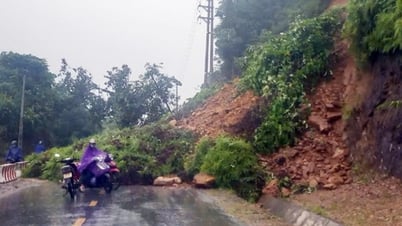

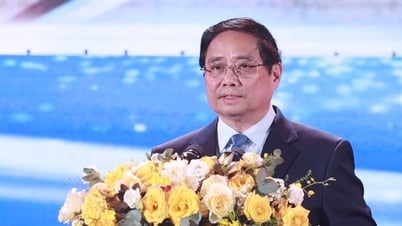










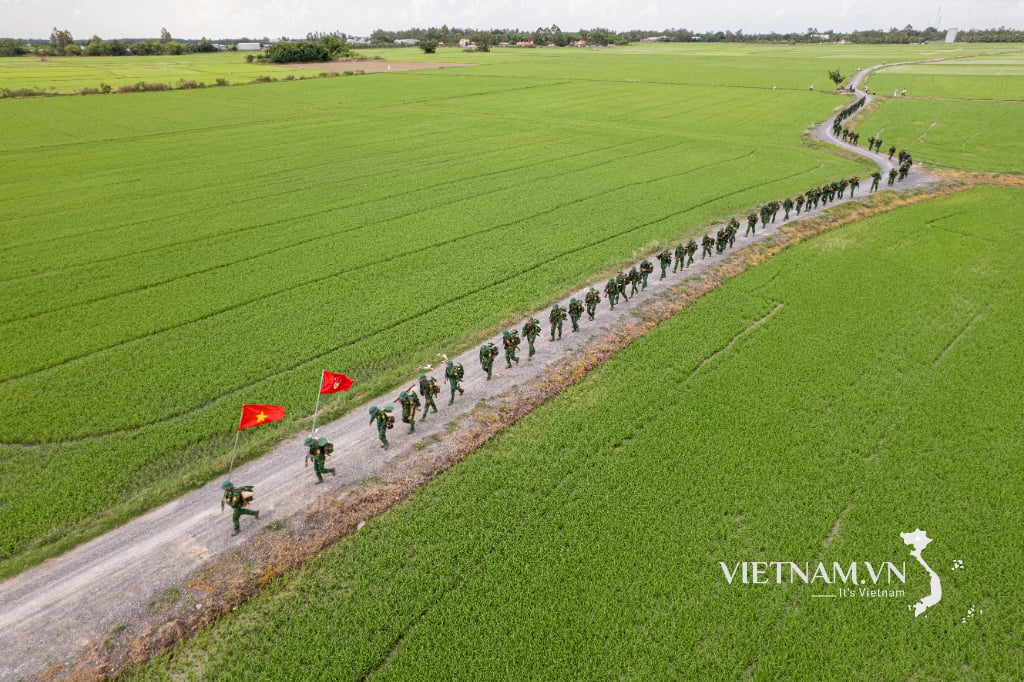



Comment (0)